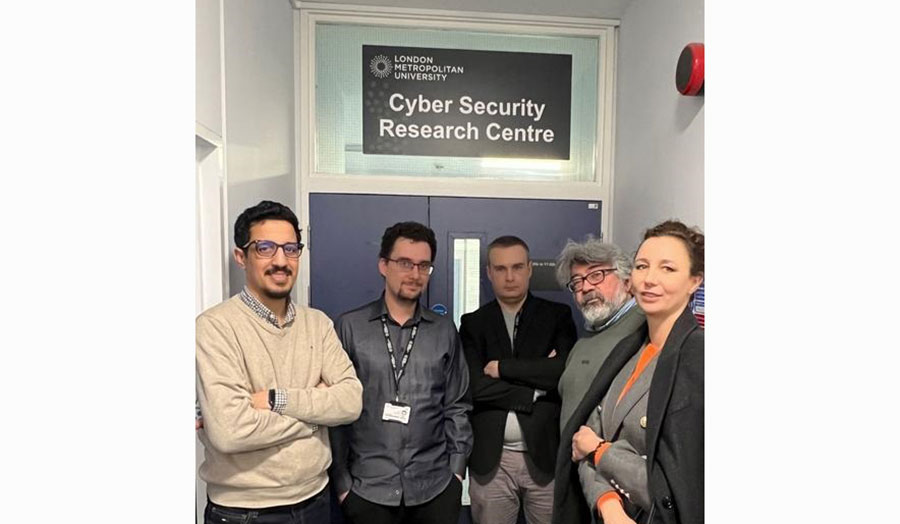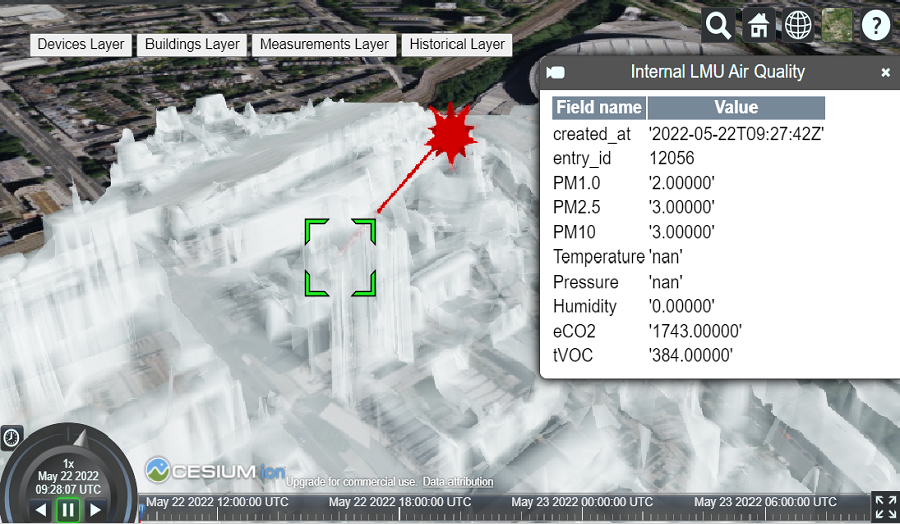Apply for this course
Please select when you would like to start:
Use the apply button to begin your application.
If you require a Student visa and wish to study a postgraduate course on a part-time basis, please read our how to apply information for international students to ensure you have all the details you need about the application process.
Why study this course?
Are you looking to pursue postgraduate studies in robotics and AI? This master’s course will put you well on your way to a career in robotics, artificial intelligence and machine learning. Structured to give you a thorough coverage of the key hardware-software components that underpin the design and implementation of modern engineering systems, this MSc is an ideal choice if you want to learn about the growing area of robotics and intelligent systems.
This degree programme at London Met is designed to enhance your career prospects through a module structure that balances theory and practice. It's suitable if you're a recent graduate from a connected discipline, or if you're an experienced professional from a background such as electronics, mechatronics, computer science and computer networking.
Boost your career prospects
This course is designed to enhance your career prospects through a module structure that balances theory and practice
Take your career to the next level
This course is suitable if you're a recent graduate from a connected discipline, or if you're an experienced professional from a background such as electronics, mechatronics, computer science and computer networking
Make use of our cutting-edge resources
Our tutorials, workshops and practical sessions in IT studios and specialised laboratories will enable you to work with professional software tools, development kits and engineering equipment
Course Modules
The modules listed below are for the academic year 2021-22 and represent the course modules at this time. Modules and module details (including, but not limited to, location and time) are subject to change over time.
- Sensors, Actuators and Control, Core (20 credits)
- Robotics Systems, Core (20 credits)
- Computer Vision, Core (20 credits)
- Statistical Modelling and Forecasting, Core (20 credits)
- Artificial Intelligence, Core (20 credits)
- Discrete Mathematical Structures, Optional (20 credits)
- Semantic Technologies, Optional (20 credits)
- Information Security, Optional (20 credits)
- Machine Learning, Optional (20 credits)
- Operations and Technology Management, Optional (20 credits)
- MSc Project, Core (60 credits)
Course details
You'll be required to have:
- a minimum of a lower second-class (2.2) honours degree (or equivalent) in electrical and electronic engineering, robotics, mechatronics, computer science or systems engineering, computing, computer networking, physics or a closely related discipline.
Graduates from other disciplines who have extensive relevant work experience will be considered on an individual basis, and may be asked to attend an interview.
Programming skills with at least one of the popular languages (e.g. Java, Python, C/C++) and computational tools such as Matlab/Maple as well as some familiarity with electronic devices would be highly desirable.
Accreditation of Prior Learning
Any university-level qualifications or relevant experience you gain prior to starting university could count towards your course at London Met. Find out more about applying for Accreditation of Prior Learning (APL).
English language requirements
To study a degree at London Met, you must be able to demonstrate proficiency in the English language. If you require a Student visa (previously Tier 4) you may need to provide the results of a Secure English Language Test (SELT) such as Academic IELTS. This course requires you to meet our standard requirements.
If you need (or wish) to improve your English before starting your degree, the University offers a Pre-sessional Academic English course to help you build your confidence and reach the level of English you require.
You'll be assessed via a range of methods throughout the course, including individual and group coursework, essays, formal written examinations/class tests and your individual project and viva.
The assessments within your taught modules will promote your theoretical understanding and application of the hardware-software components that are required to design and develop algorithms, systems and solutions related to robotics and artificial intelligence.
Your final MSc project will be a dissertation. It will be your chance to delve deeper into an area of specific interest, seeking to assess your theoretical knowledge, analytical and technological skills, project planning and reflection, engineering practice, critical appraisal and analysis and decision-making potential.
The high demand for Robotics and Artificial Intelligence specialists in business and industry promises wider employability, a broader career path and higher starting salaries.
Careers in robotics include:
- Robotics Control System Engineer
- Electronics Engineer (Robotics)
- Robotic Stems Electronics Engineer
- Software Engineer/Developer – Robotics
- Electro-Mechanical Robotics Engineer
- Robotics Control System Engineer
- Robotics/Computer Vision Engineer
- Engineer in Robotics, Control & Automation Engineer – Robotics
- Graduate Robotics Engineer
- Computer Vision Engineer in Robotics
- Robotic Systems Engineer
- Embedded Software Engineer – Robotics, etc.
Careers in computer systems engineering include:
- Computer/IT Systems and Support Engineer
- Systems Engineering
- IT System Support Engineer
- Software Support Engineer
- Application Support Consultant
- System Support Engineer
- Graduate System Support Engineer
If you've already studied your undergraduate degree with us, as a graduate of London Met, you'll be entitled to a 20% discount on any further study with us.
* exclusions apply
How to apply
Use the apply button to begin your application.
If you require a Student visa and wish to study a postgraduate course on a part-time basis, please read our how to apply information for international students to ensure you have all the details you need about the application process.
When to apply
You are advised to apply as early as possible as applications will only be considered if there are places available on the course.
To find out when teaching for this degree will begin, as well as welcome week and any induction activities, view our academic term dates.
To find out when teaching for this degree will begin, as well as welcome week and any induction activities, view our academic term dates.



















.jpg)
.jpg)
.jpg)